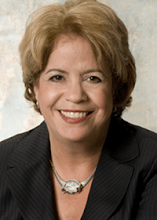But for decades we have been aware that it is a hard struggle. Mental health professionals frequently exit their training without any exposure to an in-depth understanding of "what lies beneath" patients' manifest behaviors. We still encounter educated people who say "Psychoanalysis--what's that" or "isn't that gone". I won't (right now) even go into the issues with third party insurers, with medication, with evidence based medicine.
So back to what I don't understand. I often seem to run into uses of the psychoanalytic couch as evocative image in fashion and design magazine, television commercials and shows. The surrounding drama or copy often suggests that psychoanalysis is fresh on every cultured and educated person's mind. I mean really, fresh, right there is the forefront of their collection of cultural iconic associations.
Case in point: I'm reading the December/January Dwell magazine. Dwell, for those of you who don't know it, is a modern design magazine, very hip and successful. Each issue has a feature "In the Modern World" which covers the products, furniture, buildings, books etc that interest the editors that issue. So in the furniture section of this winter issue, page 58, is a beautiful piece of furniture called "lounge chair" by Kaj Franck for Artek (artek.fi). It's black leather and bent plywood, sleek and elegant. Here's the copy from the Dwell editors:
Lie back, relax, and tell us about your mother. Innovative bentwood, L-leg construction ensures this lounge chair's longevity, so generations to come can reflect on the simplicity of the design.
So back to the mystery. How can we psychoanalysts be both struggling to avoid obsolescence at the same moment that we are a vivid cultural icon, rich with collective associations? How can we exploit the lingering traces in the public's minds that say it really really is important, sometimes, and for some people, to lie back, relax, and tell us about your mother.

